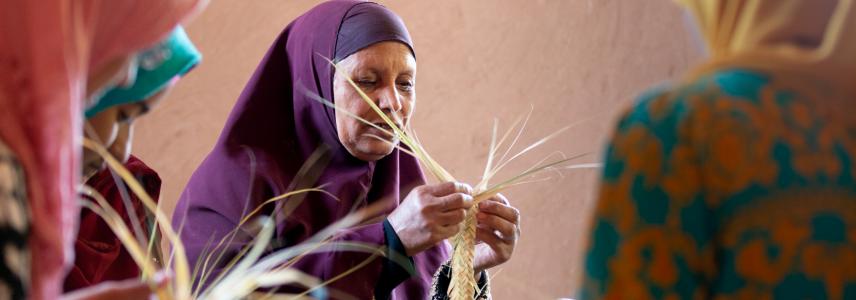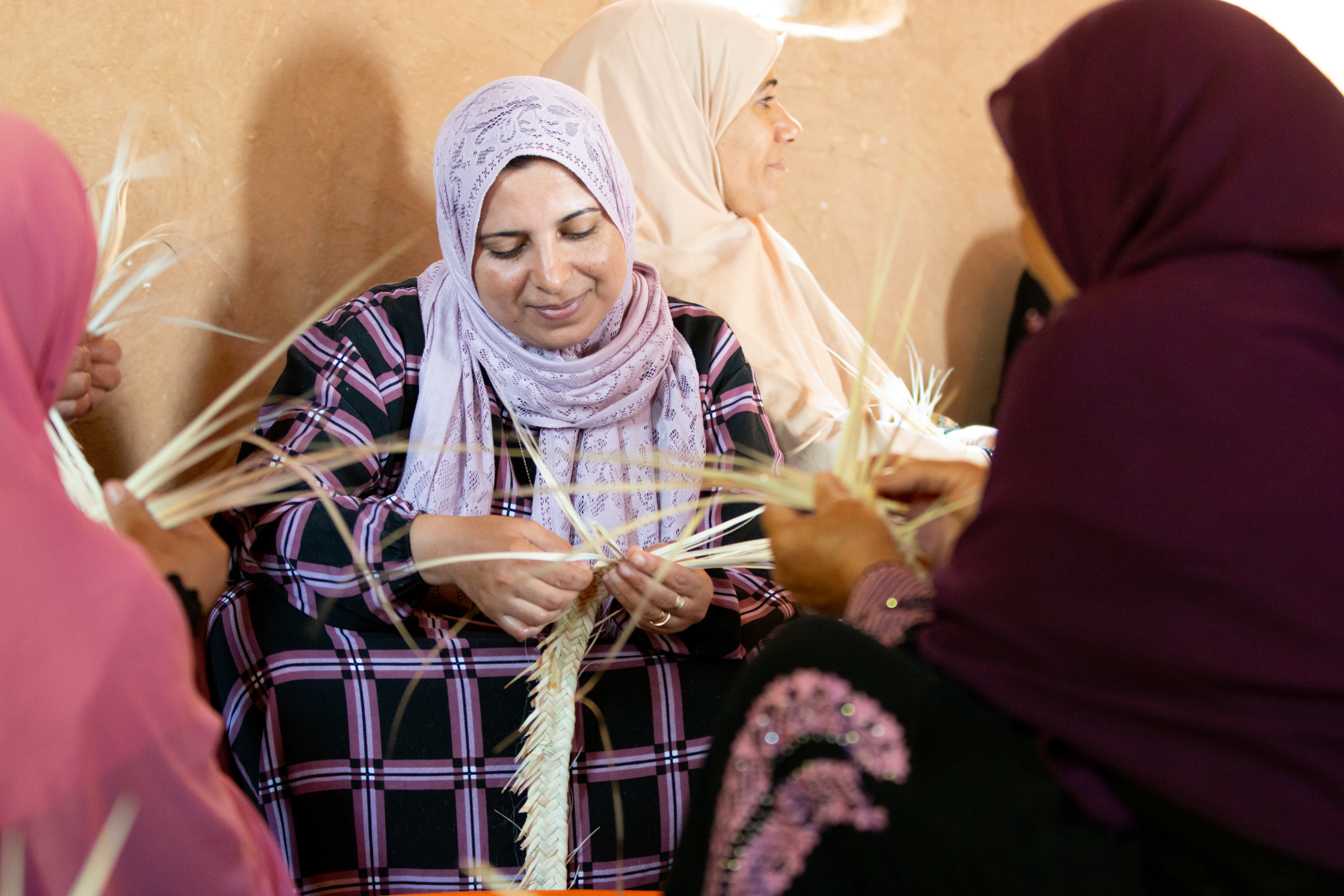Using business and market analyses to safeguard traditions and incomes in Egypt

The companies in this article were interviewed before the coronavirus crisis.
In Egypt, there was a revolution relatively recently. Political uncertainty followed, and many small businesses in Egypt are struggling to survive. Traditional home decoration and textile (HDHT) companies, in particular, have suffered due to a drop in the number of tourists. Their handmade, traditional craft products are labour-intensive to produce. This makes them relatively expensive. The workforce in this sector consists mainly of women. For many of them, this is the only work they are skilled to do. Maintaining this cultural and societal lifeline is essential. And the only way to make sure it survives is to find new export markets for the products outside of their region.
Market orientation
Sosal Art Center and Glass Style are two Egyptian HDHT companies that rely on traditional handcraft. Both companies had no experience with overseas markets and their specific tastes and requirements. Experts from the CBI programme coached the companies on finding new markets and new clients. They also received tailored advice on adapting their products for a different cultural market. These new clients value handcrafts and recycled materials.
Traditional to contemporary
“Traditional home decoration and crafts are at the core of Egyptian culture. I started this business 10 years ago. But the women I employ have been developing this craft for generations,” states Sosal Art Center Founder, Mervat Asmy Ozman. “Entering new markets is difficult.
CBI coached the companies in marketing, costing and pricing. This helped them gain a better understanding of their business models.
“CBI helped us to design products based on our traditional method but with a modern look and feel. The modern look appeals to younger generations of all nationalities,” says Ozman. “we have reinvented the way we market ourselves and communicate with potential clients. Business is growing, and yes, there are hard times here in Egypt, but international trade is increasing.” The boost in trade has given this oasis community new opportunities.

Lifeline
Glass Style’s marketing manager Suzan Bahaa: “International markets are essential for keeping businesses like ours alive. If you want to supply to the European markets, you have to create what they need and love.”
Recycle & re-use
Both Sosal Art Center and Glass Style use recycled products. Sosal uses wicker from palm fronds and Glass Style uses recycled glass. Their products and processes are a lifeline for many people and their cultures. This is especially the case for women who live in remote oases.

People power
Ozman: “New countries mean new products, and that is exciting for us, creatively.” Both companies are looking forward to continued growth in the coming years using all the experience they got from the CBI project.